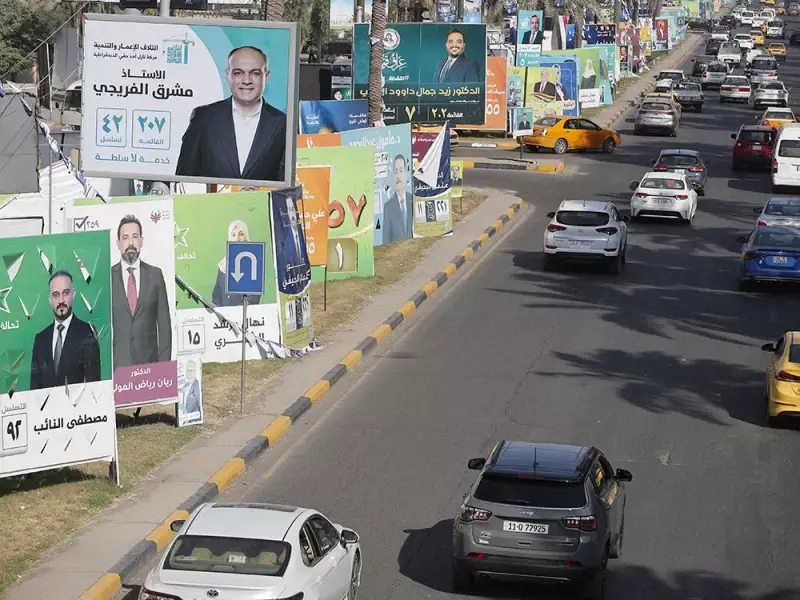
Iraqis are heading to the polls on Tuesday for a critical parliamentary election, a vote unfolding during an unusual period of stability for the nation yet overshadowed by widespread public doubt that it will improve their daily lives.
A Nation at a Crossroads
This election arrives at a pivotal moment for Iraq and the wider Middle East, with both Iran and the United States closely monitoring the results. The country of 46 million people has been unusually stable in recent years, attempting to move past decades of conflict that began with the rule of slain dictator Saddam Hussein and continued after the U.S.-led invasion that toppled him.
Despite this surface-level calm, profound challenges persist. The nation suffers from crumbling infrastructure, failing public services, and endemic corruption that has eroded public trust. Many Iraqis have lost faith in the electoral process, viewing it as a sham that primarily benefits the political elite and regional powers rather than the citizenry.
The Electoral Landscape
Polls opened at 7:00 am local time (0400 GMT) and were scheduled to close at 6:00 pm (1500 GMT). Despite the pervasive skepticism, a significant number of candidates are competing for the 329 seats in parliament.
More than 7,740 candidates are on the ballot, with nearly a third of them women. However, the electoral system is widely seen as favouring large, established parties, with only 75 independents managing to run. Over 21 million people were eligible to cast their ballots, but officials feared turnout could drop below the record low of 41 percent registered in the 2021 election.
"Every four years, the same thing happens. We don't see young faces or new energies" capable of "making a change," lamented university student Al-Hassan Yassin, echoing the sentiments of many disillusioned voters.
Familiar Faces and Regional Influence
The political landscape remains dominated by familiar figures, with no significant new contenders emerging. Since the U.S.-led forces ousted Saddam Hussein, Iraq's long-oppressed Shiite majority has dominated politics, with most parties maintaining strong ties to neighbouring Iran.
By an established convention in post-invasion Iraq, a Shiite Muslim holds the powerful post of prime minister, a Sunni serves as parliament speaker, and a Kurd occupies the largely ceremonial presidency.
Current Prime Minister Mohammed Shia al-Sudani, who is hoping for a second term after campaigning on a platform of stability and reconstruction, is anticipated to score a significant win. He originally rose to power in 2022 through the Coordination Framework, a ruling alliance of Shiite parties and factions all linked to Iran.
Al-Sudani has highlighted his government's success in keeping Iraq relatively insulated from the turmoil currently engulfing the wider Middle East. However, even securing a large bloc of seats does not guarantee him a second term, as the next prime minister will be selected by whichever coalition can assemble enough allies to form the largest bloc in parliament.
Although they are running separately in this election, the Shiite parties within the Coordination Framework are expected to reunite after the votes are counted to pick the next premier, continuing a political tradition that has left many Iraqis doubtful of genuine change.





